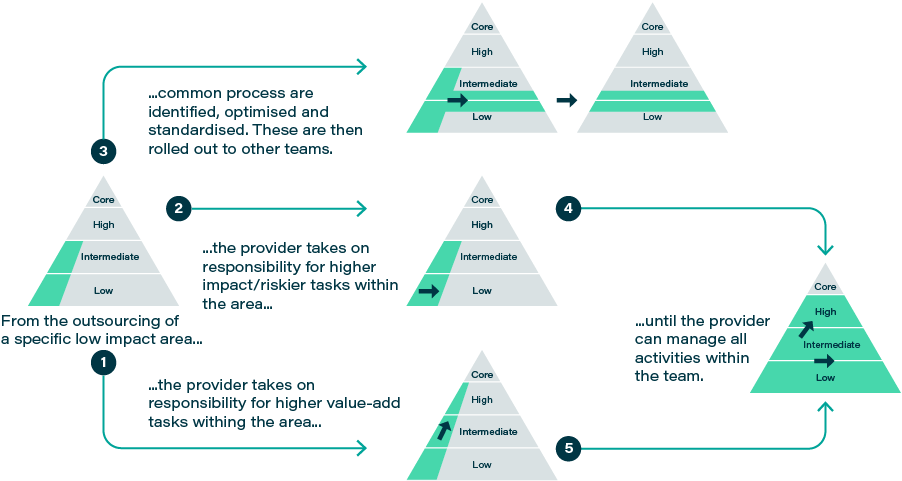We make no secret of our desire to be a positive force in the world – to make a dent in the universe, for law. To do that, we’ve embraced some of the big ideas advanced by Harvard Business School professor Clayton Christensen:
Innovation
We eschew wild claims that law firms and their business model are not fit for purpose. Instead, we believe that law firms serve the most demanding, most valuable, bet-the-company advice of law market segment well. Elevate delivers capabilities that are more suitable, at a lower price, for a new type of work: the business-as-usual, run-the-company Business of Law. Our innovative business solutions are led by experts, powered by technology, and priced by value rather than by the billable hour.
Jobs to Be Done
Our solutions deliver outcomes, also known as Jobs to Be Done. Generally, people don’t buy a product or service as the end in itself, but rather to meet their actual needs. This consultative approach requires that we spend a lot of time with our customers, bringing people to the table who have walked in their shoes, who can empathise with their aspirations, priorities, and tradeoffs. We build credibility by being realistic and rack up small wins to build confidence and trust. Over time we come to understand our customers’ actual needs, wants, and behaviors – and we are on a mission to make the lives of our customers better.
How Practising Lawyers and the Business of Law Meet
We believe the overall demand for legal services is growing. Drivers include the explosion of data, globalisation, and the requirements to comply with a more complex regulatory environment. Business is becoming digital and moving faster than ever. Despite this growing demand, law departments and law firms are under more cost pressure than ever. The industry is exploring new ways of getting legal work done, as evidenced by the rise of legal operations as a discipline, the adoption of procurement practices, disaggregation of legal work, and the emergence of a new type of legal service provider – the law company.






